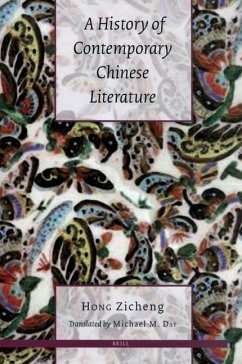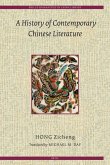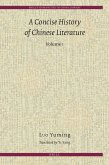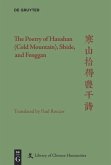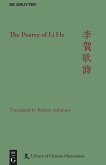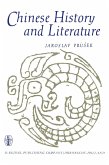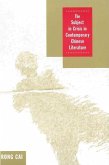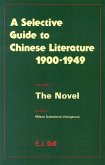This groundbreaking book by the eminent Peking University professor Hong Zicheng covers the literary scene in China during the 1949-1999 period, primarily focusing on fiction, poetry, drama, and prose writing. Reprinted sixteen times since its publication in the PRC in 1999, it is now available in English translation at last.
The first section of the book deals with the 1949-1976 period. Often derided and ignored as an arid era for literature by both Chinese and overseas critics, Professor Hong describes the literature that was popular and officially acceptable at the time, and the cultural policies and political campaigns that shaped the tastes of readers and the literary creativity of writers during the period. This part of the book is remarkable for Professor Hong's candidness and open-mindedness, qualities that would have made this text difficult to publish at an earlier date in China. Furthermore, the platform that the first part of the text provides renders the second part even more understandable to readers unfamiliar with the post-1976 literary scene - and offers new insights to those who are familiar with it - demonstrating as it does the close links between the two distinctive eras. These links are provided by the resumption of literary traditions that had been more-or-less abandoned during the preceding ten-year period, as well as reactions against literature nurtured and guided by the state cultural apparatus. The second part of the book consists of a comprehensive description of developments - and insightful explanations of those developments - in the literary arts and literary criticism since 1976.
A unique and much needed accomplishment in contemporary literary studies.
Hinweis: Dieser Artikel kann nur an eine deutsche Lieferadresse ausgeliefert werden.
The first section of the book deals with the 1949-1976 period. Often derided and ignored as an arid era for literature by both Chinese and overseas critics, Professor Hong describes the literature that was popular and officially acceptable at the time, and the cultural policies and political campaigns that shaped the tastes of readers and the literary creativity of writers during the period. This part of the book is remarkable for Professor Hong's candidness and open-mindedness, qualities that would have made this text difficult to publish at an earlier date in China. Furthermore, the platform that the first part of the text provides renders the second part even more understandable to readers unfamiliar with the post-1976 literary scene - and offers new insights to those who are familiar with it - demonstrating as it does the close links between the two distinctive eras. These links are provided by the resumption of literary traditions that had been more-or-less abandoned during the preceding ten-year period, as well as reactions against literature nurtured and guided by the state cultural apparatus. The second part of the book consists of a comprehensive description of developments - and insightful explanations of those developments - in the literary arts and literary criticism since 1976.
A unique and much needed accomplishment in contemporary literary studies.
Hinweis: Dieser Artikel kann nur an eine deutsche Lieferadresse ausgeliefert werden.
"There is no doubt that this volume, along with the Humanities in China Library series it inaugurates, should serve as a model for further translations of influential Chinese-language scholarship in years to come." - Rossella Ferrari, SOAS, University of London, The China Quarterly
"Hong (Peking Univ.) offers an excellent, dual-purpose book: it serves as both a textbook and a comprehensive history of Chinese literature from the 1940s to 1996...Highly recommended."
- Choice
"...[A History of Contemporary Chinese Literature's] significance is the scope of its overview of mainland Chinese fiction, poetry, prose, and aspects of theater through the mid-1990s in their documented institutional and critical context... Hong's history is well documented, with annotated citations of both criticisms from the time the works were published and from more recent scholars of the contemporary period, especially Huang Ziping and Zhu Zhai. There is welcome attention to a range of valuable topics, from institutional structures, biographical notes, translations of foreign literature and other texts available through the restricted "internal distribution" (neibu) system of publication, unofficial, underground texts of the Cultural Revolution era, and so forth... [Translator] Michael M. Day's translation greatly enhances the value of Hong's book as a reference text by adding a bibliography, glossary, and index and shifting Hong's endnotes to footnotes. [This text is] a solid and comprehensive survey that will stand as an important reference and source for new scholarship... [and] could provide a centerpiece for an engaging and productive course on the field."
- Edward Gunn, Cornell University, MCLC Resource Center Publication (Copyright September 2008)
"Hong's panoramic history of contemporary Chinese literature, now in English translation for the first time after its many printings in Chinese, will be indispensable for both teaching and research...Its thorough and wide-ranging coverage from 1949 to 1999 touches upon many fascinating and understudied texts in that history, which can be points of entry for students and scholars of contemporary China to further their researches."
Liang Luo, University of Kentucky, China Review International Vol. 16, No. 4 (2009)
"Hong (Peking Univ.) offers an excellent, dual-purpose book: it serves as both a textbook and a comprehensive history of Chinese literature from the 1940s to 1996...Highly recommended."
- Choice
"...[A History of Contemporary Chinese Literature's] significance is the scope of its overview of mainland Chinese fiction, poetry, prose, and aspects of theater through the mid-1990s in their documented institutional and critical context... Hong's history is well documented, with annotated citations of both criticisms from the time the works were published and from more recent scholars of the contemporary period, especially Huang Ziping and Zhu Zhai. There is welcome attention to a range of valuable topics, from institutional structures, biographical notes, translations of foreign literature and other texts available through the restricted "internal distribution" (neibu) system of publication, unofficial, underground texts of the Cultural Revolution era, and so forth... [Translator] Michael M. Day's translation greatly enhances the value of Hong's book as a reference text by adding a bibliography, glossary, and index and shifting Hong's endnotes to footnotes. [This text is] a solid and comprehensive survey that will stand as an important reference and source for new scholarship... [and] could provide a centerpiece for an engaging and productive course on the field."
- Edward Gunn, Cornell University, MCLC Resource Center Publication (Copyright September 2008)
"Hong's panoramic history of contemporary Chinese literature, now in English translation for the first time after its many printings in Chinese, will be indispensable for both teaching and research...Its thorough and wide-ranging coverage from 1949 to 1999 touches upon many fascinating and understudied texts in that history, which can be points of entry for students and scholars of contemporary China to further their researches."
Liang Luo, University of Kentucky, China Review International Vol. 16, No. 4 (2009)

